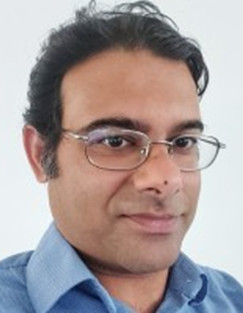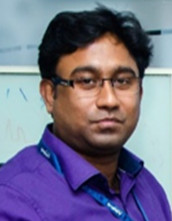Description
The connected automotive is one of the most visible examples of Internet of Things (IoT) technology. Automotive IoT integrates diverse hardware and software components like sensors, driving control systems, infotainment devices, cloud and apps, to enable a variety of functionalities like augmented automotive perception, fleet management, and automotive data services. The automotive IoT eco-system is expanding fast to include automakers, automotive chip providers, system integrators, software providers and cloud services. In order to adapt to evolving IoT technologies, it becomes critical to assess the impact of IoT in automotive to create new value based on connectivity and data. It is an aim of this workshop to put together both technology and business innovations, as well as safety, privacy and regulatory advances, that are shaping future automotive IoT.
Topics
Within its scope, the workshop solicits papers from academic and industry identifying research, technological and business innovation challenges on the following topics:
- Connected automotive architectures
- V2X connectivity / 5G and 6G connectivity for automotive IoT
- Cooperative and distributed approaches for automotive IoT sensing, decision-making and controls
- AI-based automotive perception and autonomous decision-making
- Machine learning for reliable autonomous mobility
- Federated learning in automotive IoT
- Validation and evaluation methods for automotive IoT systems
- Privacy and security for automotive IoT
- IoT business models for automotive IoT
- Data-driven monetization for automotive IoT
- Data-driven services for automotive IoT
- Regulations and policies in automotive IoT
TPC members
- Roger Berg, Denso International America Inc., USA
- Arindam Bose, KMB Telematics Inc., USA
- Anupam Chattopadhyay, Nanyang Technological University, Singapore
- Anand Dubey, Infineon Technologies
- Amit Dutta, IIT Kharagpur, India
- Javier Ibanez-Guzman, Renault S.A., France
- Shahin Khobahi, University of Illinois at Chicago, USA
- Guofa Li, Shenzhen University, China
- Jan Mietzner, HAW Hamburg, Germany
- Pietro Manzoni, Universitat Politècnica de València, Spain
- Bodhibrata Mukhopadhyay, King Abdullah University of Science and Technology, Saudi Arabia
- Wim Rouwet, NXP, USA
- Gabriel Seiberth, Accenture, Germany
- Lorenzo Servadei, Technical University of Munich, Germany
- Michael Stephan, Infineon Technologies
- Gianluigi Viscusi, Imperial College London, UK
Important Dates:
- Paper submission:
13 June 2022August 1st, 2022 - Acceptance Notification:
8 July 2022August 16th, 2022 - Camera-Ready Paper Submission Deadline:
31 July 2022August 31st, 2022
Paper should be six (6) pages in length. The conference allows up to two additional pages for a maximum length of eight (8) pages with payment of extra page charges once the paper has been accepted.
Once the paper you submitted has been reviewed and accepted you will be notified about uploading a final version of the paper for publication in the Proceedings and IEEE Xplore.
Chairs
Dr. Ashish Pandharipande, NXP Semiconductors

Ashish Pandharipande (Senior Member, IEEE) received the M.S. degrees in electrical and computer engineering, and mathematics and the Ph.D. degree in electrical and computer engineering from the University of Iowa, Iowa City, in 2000, 2001, and 2002, respectively. Since 2002, he has been a Postdoctoral Researcher with the University of Florida, a Senior Researcher with the Samsung Advanced Institute of Technology, a Senior Scientist with Philips Research, and lead R&D with Signify. He has held visiting positions at AT&T Laboratories, NJ, USA, and the Department of Electrical Communication Engineering, Indian Institute of Science, Bengaluru, India. He is currently Lead Systems Engineer at NXP Semiconductors, Eindhoven, The Netherlands. He is a Senior Editor of IEEE Signal Processing Letters, a Topical Area Editor of IEEE Sensors Journal, and an Associate Editor of IEEE Journal of Biomedical and Health Informatics. His research interests are in sensing, networked controls, data analytics, machine learning and system applications. He has more than 190 scientific publications in IEEE conferences and journals, and about 100 patents/filings, covering areas like IoT lighting, advanced sensing and control, data analytics and data-enabled services, indoor positioning and location-based services, machine learning, and cognitive wireless systems.
Dr. Avik Santra, Infineon Technologies

Avik Santra (Senior Member, IEEE) received the M.S. (Hons.) degree in signal processing from the Indian Institute of Science, Bengaluru and Ph.D. degree in electrical, electronics and informatics from Friedrich-Alexander-Universität Erlangen-Nürnberg. He is currently leading research and development of signal processing and deep learning algorithm/solutions of radar and depth sensors at Infineon, Neubiberg. Earlier in his career, he has worked as a System Engineer for LTE/4G modem at Broadcom Communications, and also has worked as a Research Engineer developing cognitive radars at Airbus. He is the co-author of the book titled “Deep Learning Applications of Short-Range Radars” published by Artech House. He has filed over 60 patents and published more than 50 research articles related to various topics of radar waveform design, radar signal processing and radar machine/deep learning topics. He was a recipient of several outstanding reviewer awards. He is a reviewer at various IEEE and Elsevier journals.
If you have any questions, please contact Dr. Ashish: pashish@gmail.com


